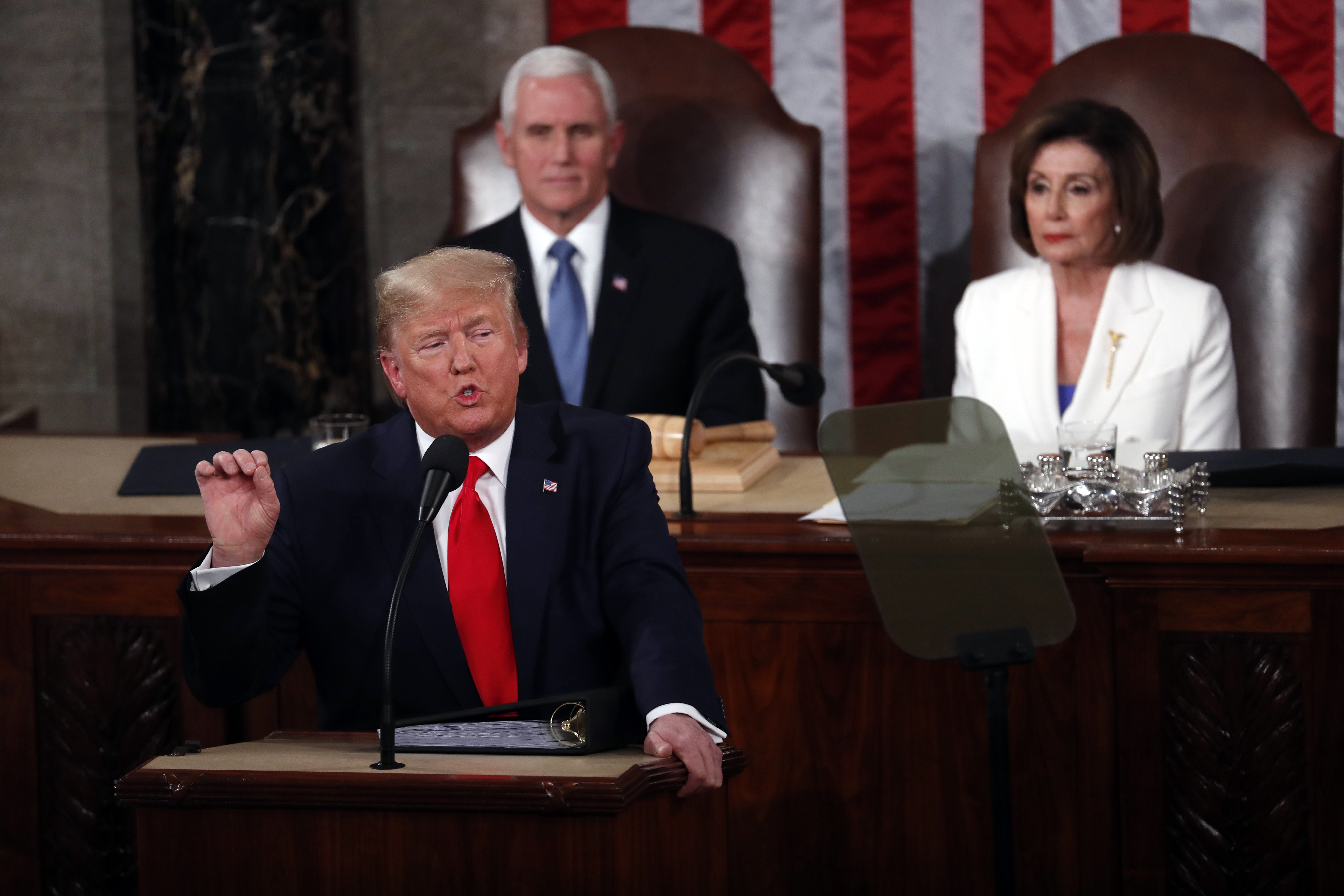Michigan Gov. Gretchen Whitmer used Democrats' response to President Donald Trump's State of the Union address Tuesday night to swivel from impeachment to working-class voters' worries, saying her party is focusing on easing health care costs and other pocket-book concerns.
Whitmer mentioned Trump's impeachment trial only briefly near the end of her nearly 11-minute speech. She sprinkled in passing references to his behavior, such as, "Bullying people on Twitter doesn’t fix bridges — it burns them."
But she spent the bulk of her address touting Democratic efforts on health care and people's struggles to pay their bills, issues that helped her party win House control in 2018.
"It’s pretty simple. Democrats are trying to make your health care better. Republicans in Washington are trying to take it away," Whitmer said from Michigan's East Lansing High School, which her daughters attend.
Her remarks were nearly overshadowed by an extraordinary gesture moments earlier by House Speaker Nancy Pelosi, D-Calif. Seated directly behind Trump in the House chamber, Pelosi marked the end of the address by theatrically tearing her copy of his remarks, dramatizing the bitter gulf between the two sides as this year's presidential and congressional election campaigns commence.
Democrats won House control in 2018 by lambasting unsuccessful efforts by Trump and congressional Republicans to repeal President Barack Obama's health care law. Democrats say they will concentrate on health care in this year's campaign as well, including opposing an administration-backed federal lawsuit aimed at declaring Obama's statute unconstitutional.
Trump's impeachment has dominated Washington since the fall and in a remarkable confluence of events, the GOP-run Senate was set to acquit him Wednesday, less than 24 hours after his address.
"As we witness the impeachment process in Washington there are some things each of us, no matter our party, should demand," Whitmer said. "The truth matters. Facts matter. And no one should be above the law."
Democrats' selection of Whitmer, 48, underscored their determination to improve their performance in the Midwest in November's elections.
Trump captured Michigan in 2016 by fewer than 11,000 votes by appealing to lower-earning workers, winning a state that hadn't voted for the GOP presidential candidate since 1988. Trump also won over enough working-class white voters to score slender victories in Wisconsin and Pennsylvania and to win Ohio handily.
Reaching out to those voters, Whitmer acknowledged their struggles to afford transportation, student loans and prescription drugs.
"Michigan invented the middle class," she said. "So, we know if the economy doesn’t work for working people, it just doesn’t work."
Whitmer's prominent role also highlighted her party's bid to appeal to women, who've soured on Trump's belligerent style and whose growing support helped Democrats make big gains in suburban districts in 2018.
Whitmer was elected governor easily that year over a Trump-backed Republican, and she's even been mentioned as a potential vice presidential nominee.
In Democrats' Spanish-language response, freshman Texas Rep. Veronica Escobar focused on health care and workers' struggles to get by.
2020 State of the Union
Speaking from a community center in her home town of El Paso near the Mexican border, Escobar also described last August's mass killing there by a shooter she said "used hateful language like the very words used by President Trump to describe immigrants and Latinos."
Escobar also touched on Trump's impeachment, saying that he'd jeopardized the next election and threatened national security with his efforts to pressure Ukraine, an ally fighting Russian-backed insurgents, to produce damaging information on political rival Joe Biden.
"We Democrats will continue to fight for truth and for what is right. No one is above the law," Escobar said.
Associated Press writer Cedar Attanasio in El Paso, Texas, contributed to this report.


